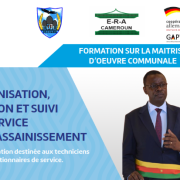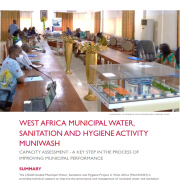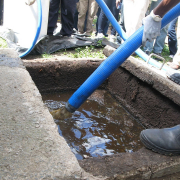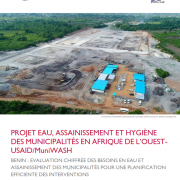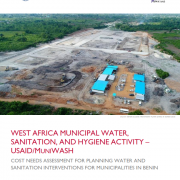Share Water No. 13
The thirteenth issue of the African Water Association (AfWA) technical and bilingual magazine, Share Water, is now available. It provides solutions in terms of guidelines and tools likely to help manage the WASH businesses efficiently and mitigate the shortage of water supply, for improved access to sustainable water and sanitation services for all in Africa.
Among these solutions, the water safety plan (WSP) approach is widely recognized as the most reliable and effective way to consistently manage drinking-water supplies to safeguard public health. Since the introduction of WSPs in the third edition of the WHO Guidelines for Drinking water Quality (GDWQ) and the International Water Association (IWA) Bonn Charter for Safe Drinking Water in 2004, a significant number of water suppliers have implemented WSPs, and many governments are actively promoting their implementation and/or inclusion in national legislation.
Some benefits of WSP implementation include the promotion of public health by continuously assuring safer drinking-water for consumers, the setting up of a proactive (rather than reactive) framework for managing drinking water quality, the early identification of new/increased risks-incidents, the in-depth systematic evaluation of water systems, and much more…


